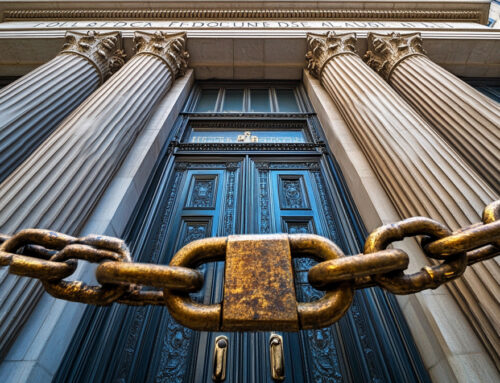When you get a student loan, you sign a promissory note that governs your repayment responsibilities. Having a stable source of income makes it easier to manage the loan payments, but what if you’ve got no income at all?
You signed up for your student loans expecting that there would be a job waiting for you at the end of your educational journey. Though this may have been the case 30 years ago, today it can take three to six months to get your first job after graduation.
Getting a job doesn’t insulate you from financial difficulties down the road. Even in a strong economy, people over 25 years old can go as much as ten weeks longer between jobs than the average 19-24-year-old.
Also, let’s not forget the role of race in your job search. Latinos are 35% more likely than white people to be unemployed, and blacks suffer from an employment rate that’s twice as high as their white counterparts.
Is it any wonder that U.S. Department of Education statistics confirm 17.4 percent of the 40.7 million federal student loan borrowers are in default, and only 4-in-10 are repaying their loans at all?
Avoiding your student loan debt does more harm than good
Approximately 44.7 million people, nearly 25 percent of the U.S. population, have a total $1.53 trillion in student loan debt. The average student loan borrower has a balance of $37,172 and is responsible for an average monthly payment of $393.
This enormous student debt load has led some to consider leaving the United States and building a new life far from the reach of student loan collectors. Life in another country, however, isn’t always so easy. Navigating an unfamiliar social and legal system far from family and friends, though exhilarating at first, often gives way to loneliness and a desire to come back home.
Other student loan borrowers, sick and tired of dealing with a system seemingly designed to ensure their failure, become intentional student loan defaulters. Some who go this route do so out of economic necessity, whereas others do so in the hopes of effecting social and political change. Though each person makes their own decision, it’s difficult to see how this will move the needle given the fact that 17.4 percent of student loan borrowers are already in default.
Ultimately, ignoring your student loans makes life worse rather than better. In fact:
- Interest capitalization causes your balance to increase exponentially.
- Your credit will be damaged if you fall behind on your student loan payments. Defaulting also exposes you to the risk of lawsuits, judgments, wage garnishments. For federal loans, you may also be subject to loss of tax refunds and other government benefits.
- Cosigners and guarantors can be held liable for the unpaid balance, threatening their financial stability.
- Calls and letters from debt collectors damage your emotional health and ability to concentrate on work and personal matters.
How student loan interest capitalization works
Your student loans start accruing interest the day the money leaves the lender’s hands. Though the federal government pays the finance charges on subsidized loans while you’re in school and under certain limited circumstances, that isn’t the case for all of your educational debts.
The real problem, however, isn’t interest – it’s capitalization. When you enter repayment after deferment or forbearance, any unpaid interest is added to the principal balance.
Let’s say you enter college and take the maximum of $2,000 in unsubsidized loans plus $3,500 in subsidized loans for your freshman year. Assuming an interest rate of 6.8%, you will owe $6,044 when you graduate four years later. Capitalization turns that $544 in accrued interest into principal and new interest accrues on the increased principal balance.
Lenders capitalize interest on student loans when you enter repayment, causing your balance to spiral at an ever-increasing rate. The longer you take to start dealing with your student loans, the more difficult it gets.
The impact of unpaid student loans on your credit
Like it or not, a lot is riding on your credit score. Credit card companies, auto finance companies, and mortgage banks review your credit before deciding whether to lend you money. Insurance companies, landlords, and potential employers may also consider your loan to determine whether you are financially responsible.
Your credit score, a number that ranges from 300 to 850, is compiled by credit reporting agencies as a way to provide a snapshot of your financial stability and ability to manage credit wisely. Though nobody knows the exact formula used to arrive at your credit score, the general elements and relative weight of each one are:
- Payment history (30%)
- Debt compared to your available credit limit (30%)
- Length of credit history (15%)
- Number of new accounts in the past 12 months (10%)
- Variety of types of credit in use (10%)
If you’re not paying your student loans on time, your credit will suffer each month as the account goes further past due. When the loan goes into default and enters collections, your score will take a nose dive.
In a worst-case scenario, the student loan lender may take actions to force you to make payments. Depending on the type of student loan, this may include wage garnishment, bank account levy, and liens on other property.
A garnishment or bank account levy makes it more likely that you’ll fall behind on other obligations, further lowering your credit score. To break the cycle and rescue your credit, take action to deal with the loans.
Cosigners suffer when you don’t pay your student loans
Though you aren’t going to have a cosigner or guarantor for a federal student loan, that’s not the case when it comes to private student loans. These private loans are entirely credit-based, and lenders require a strong credit history as well as income and assets before deciding to fund the loan. Over 90 percent of new private student loans demand a creditworthy cosigner, such as a parent or other relative.
Your cosigner shares the responsibility for repaying the private student loan. If you don’t make your payments, the lender will require your cosigner to repay the loan. Both of you will go into collections and risk a lawsuit for non-payment. All of this will end up damaging your cosigner’s credit history.
Cosigners may not realize their liability or agree to that liability because they have faith in your ability to live up to your financial responsibilities. Subjecting your cosigner to collection efforts and possible legal action may damage your relationship once they see you as the cause of their financial difficulties.
Student loan debt can harm your emotional well-being
The average college graduate leaves school with $37,172 in student loan debt. It should come as no surprise that people struggling with bill problems are more than twice as likely to experience a multitude of mental health problems, including depression and anxiety.
Recent surveys from SoFi, Student Loan Planner, and Gradifi report student loans as the top cause of money stress, with 65% of borrowers losing sleep agonizing about how they are going to pay their student loans. 43% of student loan borrowers report that their educational debt has interfered with self-care, and 15% have sought a mental health professional to deal with the stress of their student debt.
Even more disturbing is the finding that 1 in 15 borrowers have considered suicide because of it.
By avoiding your student loans, you’re more likely to experience mental health problems. Rather than allowing your student loans to drag you into depression and anxiety, it makes sense to face the problem head-on and work towards a solution.
Here’s how to pay your student loans when you have no income
How do you pay federal student loans if you don’t have an income?
The student loan system is complex, with different rules depending on the type of loan. Federal loans differ from private educational debts yet often look alike to the casual observer. Student loan servicers that administer these loans frequently handle both types, leading to greater confusion. Borrowers receive conflicting information, likely because companies don’t believe they have a responsibility to provide accurate advice.
The good news is that federal student loans offer a number of programs to help borrowers adjust their payment obligations depending on taxable income. These programs, known as Income-Driven Repayment Plans, look at your taxable income and family size to help make it easier to manage your payments.
These Income-Driven Repayment Plans can lower your monthly payment to as little as $0 per month and come with built-in debt forgiveness after a number of years of meeting your obligations.
Federal regulations also provide for immediate loan forgiveness if you’re disabled or have been the victim of school wrongdoing. Other forgiveness options exist for public service employees, teachers, and members of various professions.
Private student loans, on the other hand, offer none of these protections because they aren’t governed by federal student loan regulations. That lack of regulatory oversight, however, means private lenders have more freedom to negotiate settlements and repayment options with than would otherwise be the case.
Private loans also come with a ticking time bomb – the statute of limitations. Whereas the government can collect federal student loan debt for the rest of your life, private lenders can enforce your obligations only for a limited amount of time through the court system. This time pressure may make lenders more willing to work with you during periods of financial difficulty.
Successful student loan management requires strategic planning
As you can tell, no student loan solution is perfect. Even a plan that works for you today may not be a good fit as your life and goals change over time. That’s why it’s important to put together a plan that meets your financial needs rather than one that relies on fear and anxiety.
Always remember to revisit your plan every year to account for changes in your financial situation and personal goals. Stay informed about changes in the laws so you don’t miss out on new benefits that may become available to you.
And never forget that this is a marathon, not a sprint.
ABOUT THE AUTHOR
Meet Jay
 Since I became a lawyer in 1995, I’ve represented people with problems involving student loans, consumer debts, mortgage foreclosures, collection abuse, and credit reports. Instead of gatekeeping my knowledge, I make as much of it available at no cost as possible on this site and my other social channels. I wrote every word on this site.
Since I became a lawyer in 1995, I’ve represented people with problems involving student loans, consumer debts, mortgage foreclosures, collection abuse, and credit reports. Instead of gatekeeping my knowledge, I make as much of it available at no cost as possible on this site and my other social channels. I wrote every word on this site.
I’ve helped thousands of federal and private student loan borrowers lower their payments, negotiate settlements, get out of default and qualify for loan forgiveness programs. My practice includes defending student loan lawsuits filed by companies such as Navient and National Collegiate Student Loan Trust. In addition, I’ve represented thousands of individuals and families in Chapter 7 and Chapter 13 bankruptcy cases. I currently focus my law practice solely on student loan issues.
I played a central role in developing the Student Loan Law Workshop, where I helped to train over 350 lawyers on how to help people with student loan problems. I’ve spoken at events held by the National Association of Consumer Bankruptcy Attorneys, National Association of Consumer Advocates, and bar associations around the country. National news outlets regularly look to me for my insights on student loans and consumer debt issues.
I’m licensed to practice law in New York and California and advise federal student loan borrowers nationwide.
continue reading





